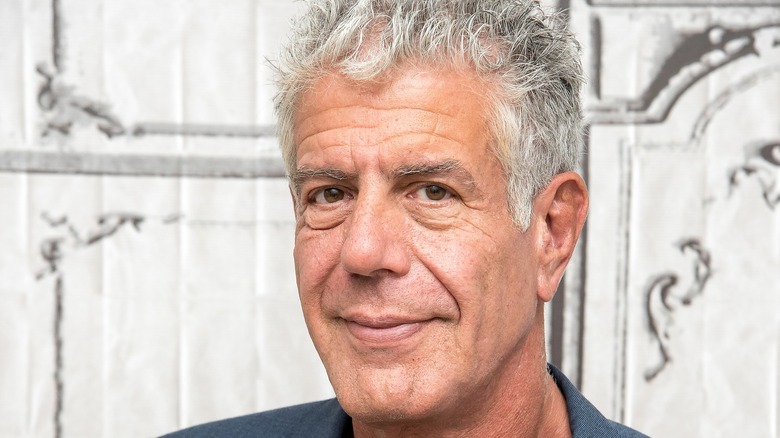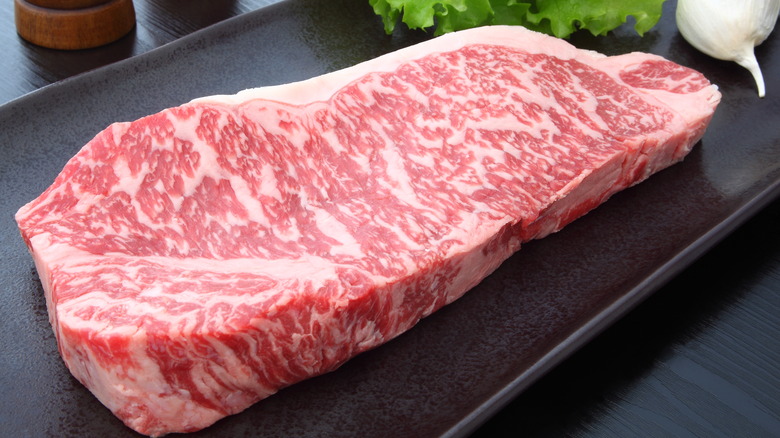What Was Behind Anthony Bourdain's Beef With Kobe Sliders?
It's hard to imagine Anthony Bourdain actively disliking any food. The chef and writer was famous for his daring nature and willingness to travel to any corner of the world for good food. But if there was one thing that could turn Bourdain off from a meal faster than a light switch, it would be overly pretentious foods. This category includes craft beer, truffle oil, and Kobe beef sliders. Bourdain's beef with Kobe sliders stemmed from his opinion that serving Kobe beef in slider form eliminates the integrity that the beef is known for. Kobe is famous for its marbling that creates a buttery texture. When that beef is ground up, and served in small patties, Bourdain believes you miss out on the full Kobe experience.
"What makes Kobe good is texture. You lose all of that immediately. It doesn't matter if you're just slapping a name on not just a burger, but a tiny, little burger," Bourdain said for First We Feast. "You're just selling status there and bragging rights and the last thing they care about is, 'Is this the best?'"
Bourdain felt that ordering Kobe beef in a slider disgraced the experience of Kobe beef; instead, it was just a status symbol. In an interview with Town and Country, Bourdain stated that a Kobe slider indicates a "douche economy." Bourdain believed if you really wanted Kobe beef, you should be willing to shell out for the full experience.
How to ensure you're getting authentic Kobe beef
Of course, not all Kobe beef on a menu is just a showcase of status. There are certain steps you can take to ensure what you're ordering is real-deal Kobe. For starters, you're better off ordering Kobe beef in steak form. It's also popular as shabu shabu and sukiyaki, where the meat is sliced thinly and cooked in liquid: Shabu shabu is briefly boiled in broth, and sukiyaki is simmered. These methods allow you to see that iconic marbling Kobe beef is known for and to experience the real texture. Another thing to be mindful of when ordering Kobe is the price. Typically it can cost anywhere from $200 to $500 per pound, that's a minimum of $12.50 an ounce, but it's usually more expensive. If the price on the menu seems too good to be true, it probably is.
When you walk into a restaurant that allegedly sells authentic Kobe beef, keep your eyes peeled for a bronze statue depicting the head of a Tajima cattle. This coveted piece ensures that the restaurant is authorized to sell real Kobe beef. All Kobe should include a certificate of authenticity as well: Some show diners this certificate as proof of the quality. If you request it and are told it doesn't exist you may be getting fake Kobe beef. Next time you see this specialty beef on the menu, keep in mind the tell-tale signs of authentic Kobe before you order.

